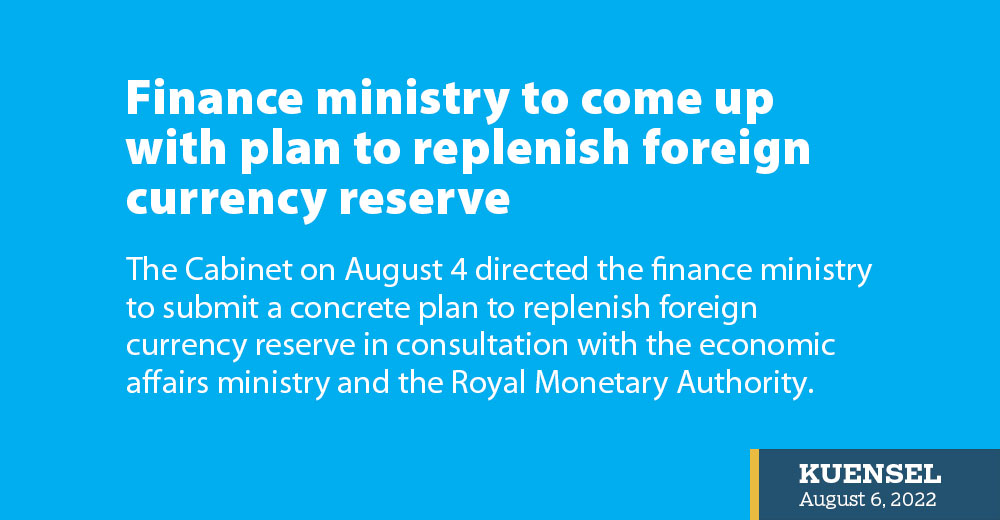….no moratorium on the import of non-essential commodities for now
Thukten Zangpo
The Cabinet on August 4 directed the finance ministry to submit a concrete plan to replenish foreign currency reserve in consultation with the economic affairs ministry and the Royal Monetary Authority.
Bhutan’s foreign currency reserve depleted by over 40 percent between April 2021 and February 2022, according to the Royal Monetary Authority’s latest provisional report.
As of February, the reserve was able to meet only 7.6 months of essential imports.
Expressing concerns about imposing a moratorium on the import of non-essential commodities, the Cabinet stated that the decision had the potential to create market distortion. “The cabinet has decided not to impose a moratorium for the time being without proper assessment and plan.”
The ministry has been asked to enhance export and protect foreign currency reserves through import restrictions in the country at the earliest possible.
As an alternative, the ministry was directed to explore the possibility of mobilisation from international banks and other external sources to replenish the foreign reserves.
The reserve saw an increase of about 17 percent in March this year—USD 984.8B, which was able to meet 9 months of essential imports, three months less than the Constitutional requirement of reserve enough for one year’s imports.
March saw an increase in the Indian Rupee reserve (INR) to INR 20.4B from INR 11.4B in February this year.
In March, Bhutan exported electricity worth INR 546M from INR 89.61M in February this year. The electricity sale to India is rising which recorded a growth of INR 3.3B as of June this year.
Similarly, the convertible currency reserve also increased from USD 690.4M in February to USD 716M in March. During the period, the inward remittances increased from USD 3.97M to USD 10.95M.
For an import-driven country, foreign currency reserve is important for trade.
Because of a surge in imports, Bhutan’s trade deficit widened to Nu 27.3B as of June this year.


